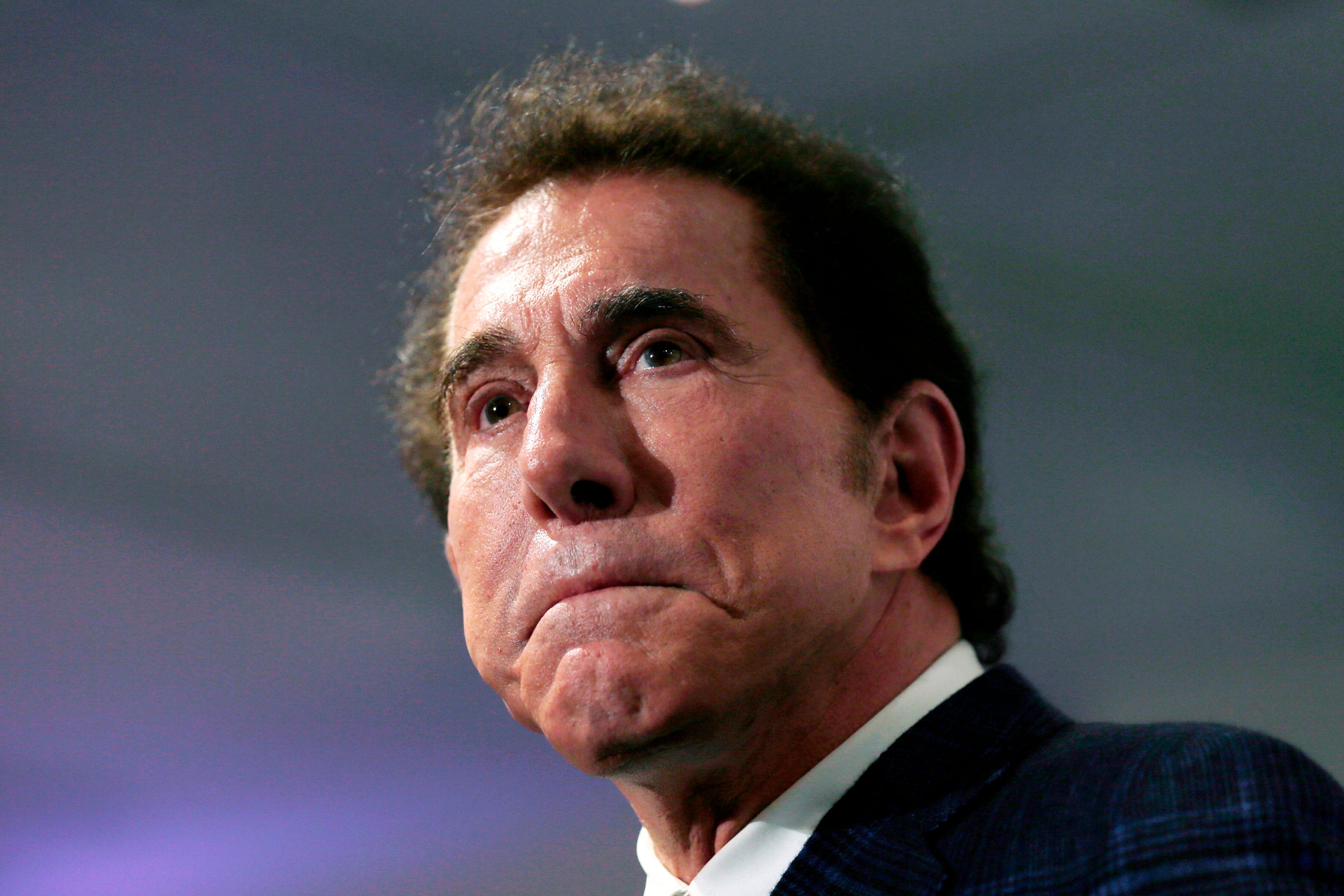Judge ends lobbying suit against casino developer Steve Wynn
A federal judge has dismissed a Justice Department lawsuit that sought to force longtime casino developer Steve Wynn to register as a foreign agent

Your support helps us to tell the story
From reproductive rights to climate change to Big Tech, The Independent is on the ground when the story is developing. Whether it's investigating the financials of Elon Musk's pro-Trump PAC or producing our latest documentary, 'The A Word', which shines a light on the American women fighting for reproductive rights, we know how important it is to parse out the facts from the messaging.
At such a critical moment in US history, we need reporters on the ground. Your donation allows us to keep sending journalists to speak to both sides of the story.
The Independent is trusted by Americans across the entire political spectrum. And unlike many other quality news outlets, we choose not to lock Americans out of our reporting and analysis with paywalls. We believe quality journalism should be available to everyone, paid for by those who can afford it.
Your support makes all the difference.A federal judge on Wednesday dismissed a Justice Department lawsuit that sought to force longtime casino developer Steve Wynn to register as a foreign agent because of lobbying work it said he conducted at the behest of the Chinese government during the Trump administration.
U.S. District Judge James Boasberg did not address in his 20-page order whether Wynn was functioning as a Beijing agent. Instead, he said he agreed with Wynn's lawyers that the department could not compel him now to register as a foreign agent because any relationship Wynn had with the Chinese government ended in 2017.
The order is a setback for stepped-up Justice Department efforts to enforce a decades-old law known as the Foreign Agents Registration Act. It requires anyone who lobbies on behalf of a foreign government or entity to register their work with the U.S. government.
“We are delighted that the District Court today dismissed the government’s ill-conceived lawsuit against Steve Wynn," his lawyers, Reid Weingarten and Robert Luskin, said in a statement. “Mr. Wynn never acted as an agent of the Chinese government and never lobbied on its behalf.”
The Justice Department has said that it repeatedly advised Wynn over the past four years to register. It sued him in May to try to force him to do so, describing the suit as the first of its kind in more than three decades.
Wynn resigned in 2018 as chairman and CEO of the casino and resorts company bearing his name, after multiple women accused him of sexual misconduct.
The complaint alleged that Wynn, a prolific Republican donor and onetime finance chairman of the Republican National Committee, lobbied then-President Donald Trump and members of his administration for several months in 2017 to expel from the United States a Chinese citizen who had been charged with corruption in China and was seeking political asylum in America. Efforts to send the man back to China were ultimately unsuccessful.
According to the complaint, the lobbying effort was conducted on behalf of senior Chinese government officials, including Sun Lijun, the then-vice minister of the Ministry of Public Security who sought Wynn’s help in trying to get the Chinese man's new U.S. visa application denied.
The lobbying effort also included conversations over dinner with Trump and by telephone, and multiple visits to the White House by Wynn for apparently unscheduled meetings with the issue was discussed.
The complaint said Wynn was motivated to protect his business interests in China. At the time, his company owned and operated casinos in the Chinese territory of Macau. The government in Macau had restricted the number of gaming tables and machines that could be operated at Wynn’s casino, the Justice Department said, and he was scheduled to renegotiate licenses to operate casinos in 2019.
Lawyers for Wynn denied at the time of the suit that he had acted as an agent of the Chinese government or that he had had an obligation to register. They later moved to dismiss the lawsuit, noting that his relationship with the Chinese government had ended in 2017.
Wynn's team cited a 1987 appeals court opinion suggesting that the obligation to register as a foreign agent terminates once the relationship with foreign entity has ended.
___
Follow Eric Tucker on Twitter at http://www.twitter.com/etuckerAP
Subscribe to Independent Premium to bookmark this article
Want to bookmark your favourite articles and stories to read or reference later? Start your Independent Premium subscription today.